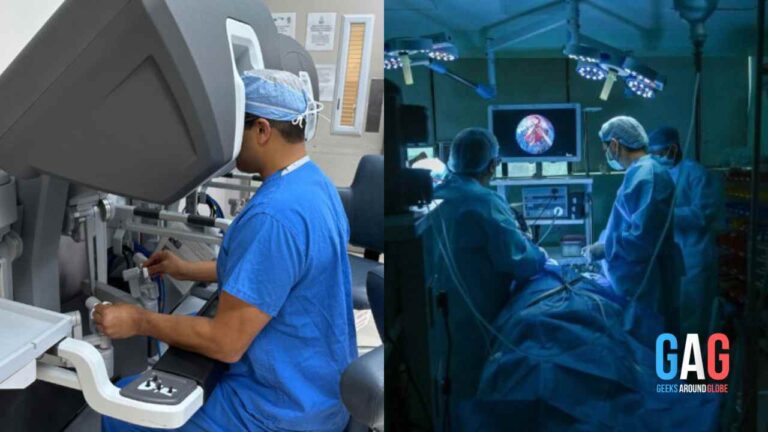
(Source)
Nursing is an incredibly important and rewarding profession that demands a unique set of skills and qualities. Nurses play an integral part in ensuring that patients receive the best possible care—whether it’s administering medication, performing medical procedures, or simply providing emotional support.
But what does it take to be an excellent nurse? Beyond formal education and training, nurses must possess a wide range of skills and traits that allow them to provide quality care in challenging situations. In this article, we’ll explore these five essential skills that every nurse needs to succeed in their profession and highlight how these skills impact patient outcomes. So, whether you’re a seasoned nurse looking to brush up on your skills or someone considering a career in nursing, read on to discover the key qualities that make a great nurse.
- Critical Thinking Skills
Nurses at the front line in the healthcare sector are often called upon to make quick decisions that can significantly impact a patient’s well-being. That’s why strong critical thinking skills are an essential component of any nurse’s skillset. Critical thinking enables nurses to analyze complex situations, identify potential issues, and respond appropriately to changing circumstances. Whether it’s administering medication or developing a care plan, nurses with sharp critical thinking skills can ensure that patients receive the best possible care.
For nurses who want to improve their critical thinking abilities but don’t have the time to enroll in an on-campus program, online MSN nursing programs can be an excellent option. These programs provide advanced education and training that can help nurses enhance their critical thinking skills. Through coursework that emphasizes problem-solving, decision-making, and clinical reasoning, MSN nursing programs can equip nurses with the tools they need to excel in their profession.
- Attention to Detail
Attention to detail is a fundamental skill that every nurse must master to provide quality patient care. Nurses must be able to notice even the smallest details, as it can be the difference between life and death for a patient. Therefore, nurses must ensure that every aspect of their patient’s care is accurately documented and that all medical procedures are correctly performed.
One way for nurses to improve their attention to detail is to participate in ongoing training and professional development. Attending seminars, workshops, and continuing education courses can help nurses stay up-to-date on the best practices and technologies in their field. Such training programs can help nurses develop new skills and strategies for ensuring that every aspect of their patient’s care is properly documented and carried out.
- Communication Skills
As front-line care providers, nurses need to establish a strong rapport with their patients. Clear communication is key to building trust and good relationships with patients, families, and other healthcare professionals. Nurses need to be empathetic and approachable and have excellent listening skills to understand their patient’s concerns and provide compassionate care. Effective communication also helps to prevent medical errors and misunderstandings, which can lead to complications and further health problems.
Nurses can improve their communication skills by practicing active listening and paying full attention to what the person is saying and what message they are trying to convey. Using techniques such as asking open-ended questions, summarizing what the patient said, and giving appropriate feedback can help improve their communication. Moreover, using common vernacular instead of complex medical terms can improve the patient’s understanding of the situation.
- Time Management Skills
Being a nurse is no easy feat, and it requires excellent time management skills to provide quality care for multiple patients. Nurses must juggle various responsibilities and prioritize tasks to ensure every patient receives the attention they need. This requires the ability to multitask, work efficiently, and effectively manage their time. Without proper time management skills, nurses may struggle to meet the needs of their patients and provide the care they deserve.
To improve their time management skills, nurses can take several steps. One effective approach is prioritizing tasks by creating a to-do list and breaking down complex tasks into smaller, more manageable steps. This can help nurses stay organized and on track, preventing tasks from falling through the cracks. Additionally, nurses can use technology like electronic medical records and scheduling apps to streamline their workflow and keep track of important deadlines.
Another way to improve time management skills is to delegate tasks to support staff and collaborate with other healthcare professionals. By working together as a team, nurses can optimize patient care and reduce their workload, allowing them to focus on critical tasks that require their expertise.
- Leadership Skills
Nurses who possess strong leadership skills are the backbone of any healthcare team. They inspire and guide other nurses to provide the best possible care for their patients while promoting a positive work environment. Leaders in nursing can effectively manage and motivate others, take on additional responsibilities, and advocate for the needs of patients and colleagues.
To improve their leadership skills, nurses can take on leadership roles in their workplace, such as becoming charge nurses or mentoring new nurses. Additionally, nurses can seek leadership training programs or continuing education courses to learn more about effective leadership styles and strategies. Collaborating with other healthcare professionals and networking with peers can also provide valuable professional growth and development opportunities.
Conclusion
In conclusion, nursing is a demanding and complex profession that requires a diverse range of skills. From critical thinking and attention to detail to effective communication and time management, nurses must possess various skills to provide quality patient care. As the healthcare industry continues to evolve, nurses will need to adapt and develop new skills to meet the needs of patients and communities. By continually learning and growing, nurses can ensure that they are equipped with the knowledge and expertise necessary to provide excellent patient care and make a positive impact in their profession. Whether through continuing education, leadership training, or collaborating with colleagues, nurses can continue to improve their skills and expand their horizons.






